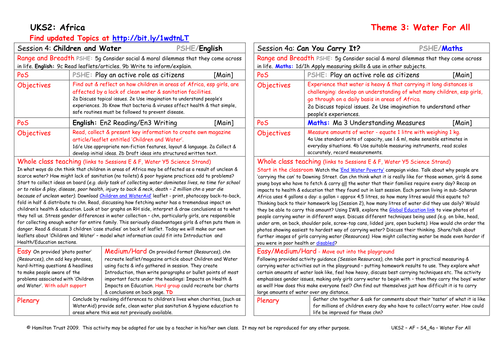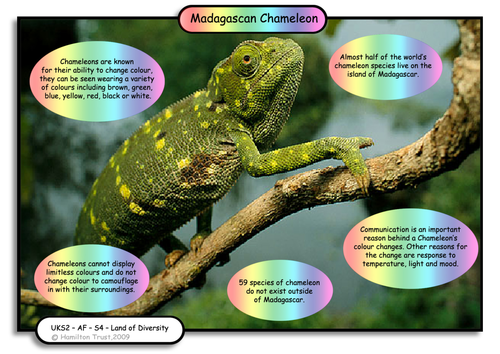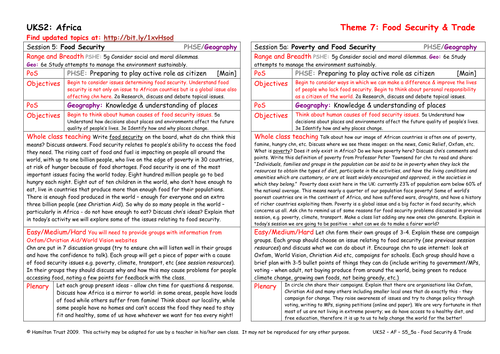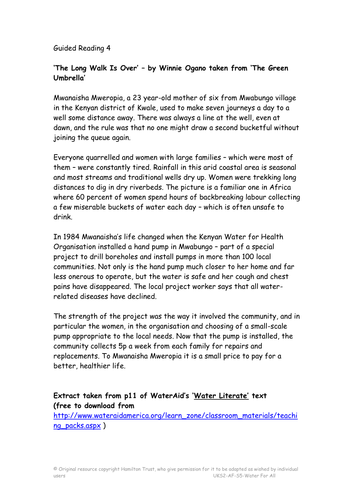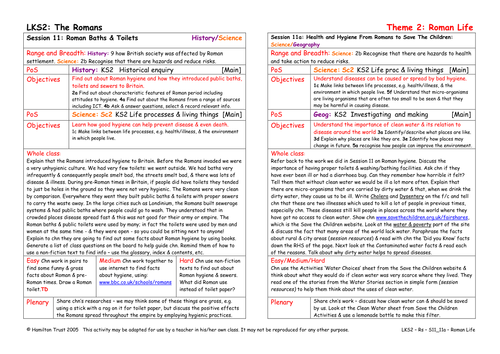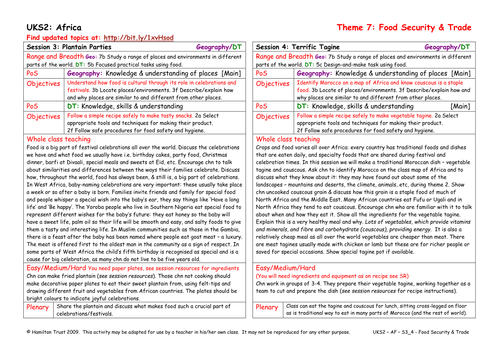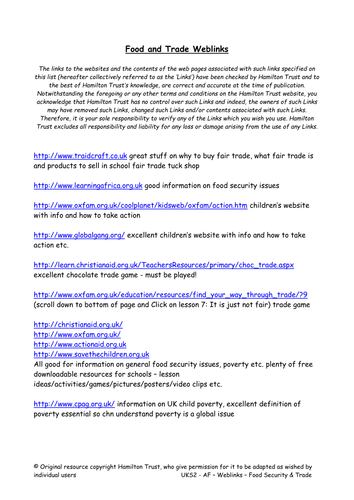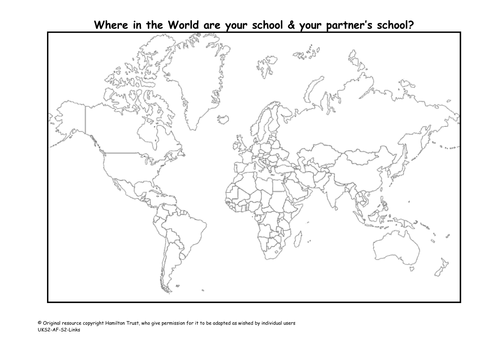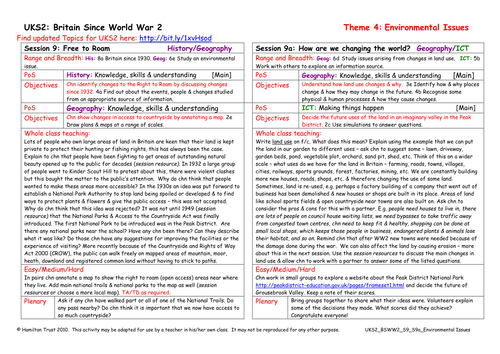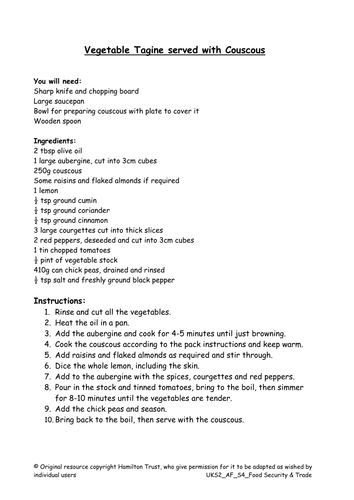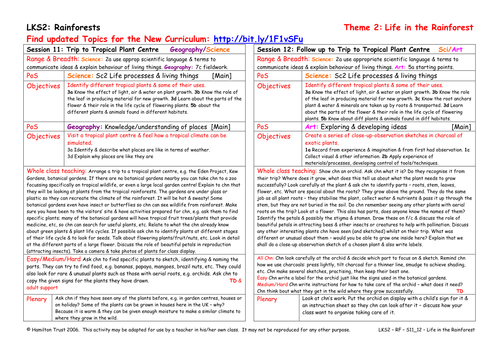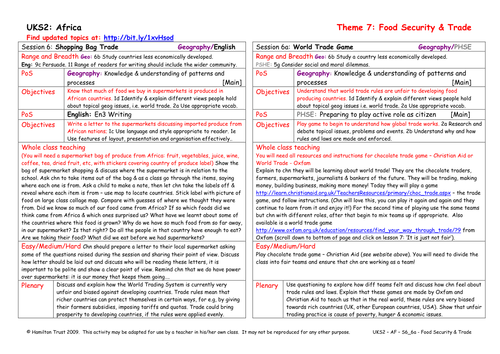
397Uploads
10045k+Views
11646k+Downloads
Geography

Children and Water
Using an informative and clear leaflet downloaded from WaterAid, children read and discuss how children in parts of Africa are affected by lack of clean water and sanitation. Facts are collected before creating own posters and leaflets entitled ‘Children and Water’.
Suitable for years 5 and 6.

Madagascan Chameleon
Using Madagascan Chameleons as a model, show children how they can focus upon particularly interesting aspects of their chosen creature. They will need to write an explanation of this feature. Model this using the chameleon’s camouflage.
Suitable for years 5 and 6.

Poverty and Food Security
Children think positively about ways in which we can help to improve the lives of people who lack food security. Thinking about our responsibilities as world citizens, children discuss ways of campaigning to change the causes of lack of food in Africa.

Meet Amina In Malawi
Dramatic changes to people’s lives occur when access to clean, safe water and latrine facilities are brought to a community. Children discuss ‘The Long Walk Is Over’ and read Amina’s story. They make ‘before and ‘after’ diary entries for her, expressing this change.
Suitable for years 5 and 6.

Spotlight on South Africa 2010
In 2010 the eyes of the World will be on South Africa and a country where once no sports teams visited will be a focal point for 32 teams and their fans. Children find out more about the 9 host cities and create tourist guides for each.

Creative Designs
Applying their knowledge of Mozambique batik, children plan and design a wall hanging. Children sketch their designs bearing in mind the techniques of batik and the need for clear, simple images.

From Romans To Save The Children
Children continue work on health and hygiene in relation to clean water and the diseases caused/transmitted by dirty water. Using the Save the Children website, children discover the ways in which this issue is being tackled in different parts of the world.
Suitable for years 3 and 4.

Effects of Human Land Use
Children read the description of a fictional tourist town, they consider the way the town is dependent upon the tourist industry that surrounds the Coral Lake.
A proposed new bylaw aims to change things – what effects will this have? Children hold a town meeting.

Plantain Parties
Children discuss how all cultures have celebrations and festivals – special days in which special foods are eaten and shared. In parts of West Africa a child’s 5th birthday is special as many do not live to be five. Children make fried plantain and decorate plates.

No Magic Tap
Find out about children’s experience of water all around the world using Oxfam’s Our World Of Water and compare with life in the UK. In a similar style to the book, children create a ‘scrapbook’ page comparing their lives with Khadija or Gamuchu from Africa.
Suitable for years 5 and 6.

Food Crops and Fufu
Children are introduced to the idea that there are some staple foods which exist in all cultures. These are usually carbohydrates, and in many African countries they consist of foods made from Maize or corn. Children make fufu.

Where in the World?
Discover where in Africa your link school is (or use a child described in a book as your link). Imagine you are going to visit and plan the journey you would make. Draw the route on maps or create a journey timeline including distances, mode of travel, etc.
Suitable for years 5 and 6.

Free To Roam
In the past landowner’s have not wanted people to have access to their land. Children look at how the introduction of National Parks and Access to the Countryside Act 1949 has changed this. Children annotate a map showing ‘right to roam’ areas, trails, etc.

Terrific Tagine
Children return to the notion of a staple food. They look at uncooked couscous grain and discuss how this grain is a staple of much of North Africa and Middle East. Then children cook vegetable Tagine and enjoy eating it!

Trip to Tropical Plant Centre
In this session children get up close and personal with tropical plants on a visit to a botanical garden, zoo or even a large garden centre. Children find out more about conditions for growth and the life cycles of different plants.
Suitable for years 3 and 4.

Shopping Bag Trade
Children learn how much of the food we buy in supermarkets is produced in African countries. They discuss this in the light of their knowledge of fair trade and write a letter to the local supermarket to discuss the issues.

